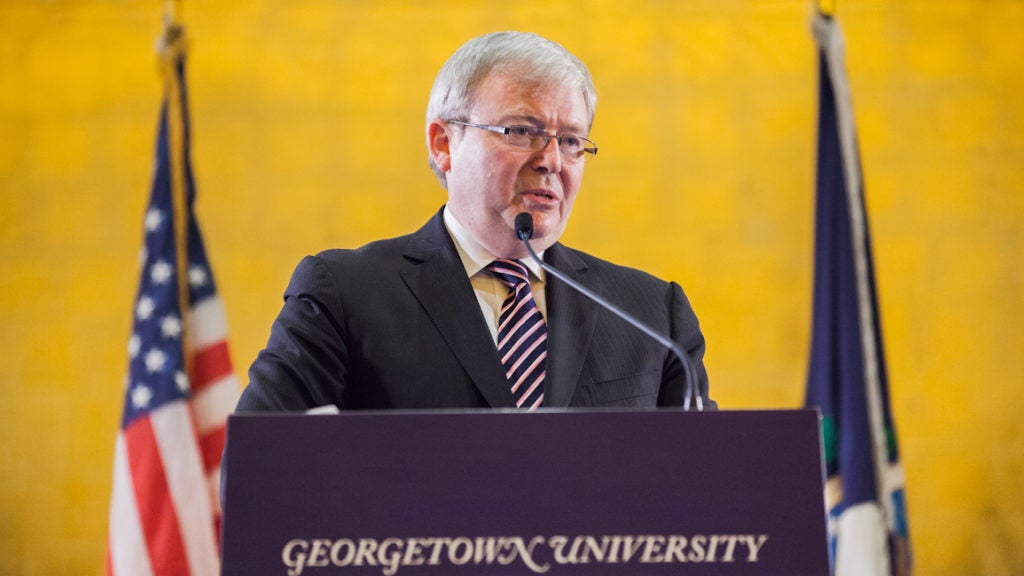Georgetown SFS-Q Welcomes Prime Minister Kevin Rudd

Georgetown University School of Foreign Service in Qatar (SFS-Q) prepares to welcome Mr. Kevin Rudd, MP and 26th Prime Minister of Australia to share his insights on “What the Change in Communist Leadership says about China’s Future” at a distinguished lecture to be held at the SFS-Q campus on Thursday 15th November.
“SFS-Q is delighted to welcome former Prime Minister Kevin Rudd to campus as part of its continuing mandate to stimulate discussion about important developments within the international community” said Daniel Stoll, Associate Dean for Academic Affairs, SFS-Q.
As Prime Minister and Foreign Minister, Kevin Rudd took the lead in making sure that Australia engaged with China and the wider region. In his much anticipated lecture at SFS-Q, Mr Rudd will speak about the challenges that China poses, as well as offer thoughts about the future of the Asia-Pacific.
During his lecture, Mr Rudd will outline his proposal for the leaders of United States and China to formulate a five-year strategic roadmap for future relations between the two countries, based on a regional rules-based security order. He will discuss his idea of a “Pax Pacifica” which will aim to ease the tensions between the United States and China and to promote security and strategic cooperation. He will also share his views on the new Chinese leadership and his own personal interactions with XI.
On China’s new President Mr Rudd has said “I believe him to be a man comfortable with the mantle of leadership. I believe his first term will focus overwhelmingly on the task of further economic reform. And if that succeeds, he may well embrace the task of political reform during his second term.
He is, therefore, I believe a leader that both Australia and the United States can do business with. And we in Australia should now be working with our American friends on how to develop a new strategic road-map for US-China relations over the next five years. And this should include how together we can build a stable, rules-based security order of East Asia out of the emerging machinery of the East Asian Summit.”
Steven Ward, Assistant Professor, SFS-Q concluded, “The rise of China has the potential to bring with it the most significant transformation in international politics since the end of the Cold War. The consequences of China’s emergence, though, are hardly clear. Nor is it clear how status quo stakeholders should respond to an increasingly powerful and assertive China. With increasing tension in the East and South China Seas, and with the impending leadership transition in the PRC, now is a particularly appropriate time for a rigorous debate about the future of the Sino-American relationship and the Asia-Pacific region.”